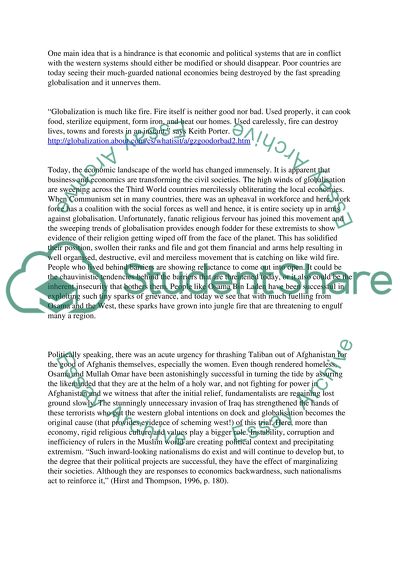Cite this document
(Conflict among Nations and the Globalization Influence on this Issue Essay, n.d.)
Conflict among Nations and the Globalization Influence on this Issue Essay. Retrieved from https://studentshare.org/politics/1535402-discuss-the-view-that-globalisation-has-generated-conditions-in-poor-countries-that-are-conducive-to-instability-conflict-and-the-emergence-of-extremist-m
Conflict among Nations and the Globalization Influence on this Issue Essay. Retrieved from https://studentshare.org/politics/1535402-discuss-the-view-that-globalisation-has-generated-conditions-in-poor-countries-that-are-conducive-to-instability-conflict-and-the-emergence-of-extremist-m
(Conflict Among Nations and the Globalization Influence on This Issue Essay)
Conflict Among Nations and the Globalization Influence on This Issue Essay. https://studentshare.org/politics/1535402-discuss-the-view-that-globalisation-has-generated-conditions-in-poor-countries-that-are-conducive-to-instability-conflict-and-the-emergence-of-extremist-m.
Conflict Among Nations and the Globalization Influence on This Issue Essay. https://studentshare.org/politics/1535402-discuss-the-view-that-globalisation-has-generated-conditions-in-poor-countries-that-are-conducive-to-instability-conflict-and-the-emergence-of-extremist-m.
“Conflict Among Nations and the Globalization Influence on This Issue Essay”, n.d. https://studentshare.org/politics/1535402-discuss-the-view-that-globalisation-has-generated-conditions-in-poor-countries-that-are-conducive-to-instability-conflict-and-the-emergence-of-extremist-m.


